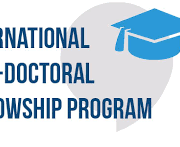The Norwegian University of Life Sciences (NMBU) has a vacant 3-year Ph.D.–position in evolutionary genomics
The Department of Animal and Aquacultural Sciences, Faculty of Biosciences at the Norwegian University of Life Sciences (NMBU) has a vacant 3-year Ph.D.–position in evolutionary genomics. The position is financed with strategic funding from NMBU and will be linked to the RCN-funded project TRANSPOSE and FHF-funded project SynchroSmolt that seek to understand the genome evolution and phenotype-affecting variants following a recent whole-genome duplication of Atlantic salmon.
Genomic structural variants including deletions, duplications, inversions, and translocations of genetic sequences, are rich resources for genetic diversity. In particular, Atlantic salmon genomes show extreme levels of genomic structural variants, likely due to their unique history of recent whole-genome duplication. Structural variants in Atlantic salmon genomes are one of the most promising frontiers in both evolutionary genomics and aquacultural genomics. However, due to their complex nature, which and how structural variants have driven adaptive evolution with functional advantage are yet to be clarified. Long-read sequencing is a cutting-edge technique to identify previously undiscovered structural variants. In our ongoing project, the genomic map of Atlantic salmon with long-read sequences is getting ready for deep investigation.
The goal of this project is to reveal adaptive structural variants have driven and their functional advantages by integrating omics data sets. The Ph.D. project will focus on the estimation of the effects of structural variants on various phenotypes bioinformatically. The other focus of this Ph.D. project is to reveal the adaptive evolution of structural variants of farmed salmon under domestication compared to their wild counterparts. The candidate will work in close collaboration with other Ph.D. students, postdoctoral researchers, and senior researchers.
The main tasks are bioinformatics analyses of Nanopore long-read genome data and other various omics data. Specifically:
- Literature review
- Estimate the effect of structural variants on various phenotypes using data sets from genome-wide association studies.
- Estimate the effect of structural variants on gene expression.
- Compare population-scale genomes of wild and farmed Atlantic salmon and identify variants under artificial selection.
- Publish solid peer-review papers
The successful candidate is expected to enter a plan for the progress of the work towards a Ph.D. degree during the first months of the appointment, with a view to completing a doctorate within the Ph.D. scholarship period. Presentation of findings at international conferences or/and attending international workshops/visiting relevant researchers are highly encouraged and financially supported.
The successful candidate will join CIGENE (https://cigene.no/), a multidisciplinary genome biology research group. CIGENE has established excellent wet lab facilities (CIGENE genomics lab) for automated high-throughput omics analyses and gene-editing technology, as well as the connected CIGENE Bioinformatics & Computational Unit with IT specialists to support the transfer, storage and analysis of omics data, currently administering a computer cluster. The unit will make use of both our local computer cluster with 580 CPUs, 4TB RAM and 600TB storage and national computational resources (NOTUR/Sigma2 and NORSTORE).
References:
[1] Lien, et al., https://doi.org/10.1038/nature17164
[2]Bertolotti, et al., https://doi.org/10.1038/s41467-020-18972-x
[3] Saitou and Gokcumen, https://doi.org/10.1007/s00239-019-09911-6
[4] Saitou and Gokcumen, https://doi.org/10.1093/gbe/evz107
The successful applicant must meet the conditions defined for admission to a PhD programme at NMBU. The applicant must have an academically relevant education corresponding to a five-year Norwegian degree programme, where 120 credits are at master’s degree level. The applicant must have a documented strong academic background from previous studies and be able to document proficiency in both written and oral English. For more detailed information on the admission criteria please see the PhD Regulations and the relevant PhD programme description.
The applicant must document expertise and interest in the research subject.
Required Academic qualifications
- Master’s degree in genomics, bioinformatics, evolutionary genetics, or a similar field.
- Experience with large genome data analysis
- Experience with command-line-based operation of the High-Performance Computing (HPC) system
- Experience/familiarity with R, Python, and other programming languages
The following experiences and skills will be emphasized:
- Statistical/population genomics knowledge
- Familiarity with RNA-sequencing and eQTL analysis
You need to:
- Have good collaborative skills and high motivation
- Work with initiative and creative views
- Have analytical and academic approach to research questions
- Be proficient in English, both written and spoken
Fish genomics expertise and Norwegian language skill are NOT necessarily required at the time of application.
Application deadline: (23 May 2021)
Applications should include (electronically) a letter of intent, curriculum vitae, full publication list, copies of degree certificates and transcripts of academic records (all certified), and a list of two persons who may act as references (with phone numbers and e-mail addresses). Publications should be included electronically within the application deadline. The relevant NMBU Department may require further documentation, e.g. proof of English proficiency.
Printed material which cannot be sent electronically should be sent by surface mail to the Norwegian University of Life Sciences, Faculty of Biosciences, P.O. Box 5003, NO-1432 Ås, within (23 May 2021).




